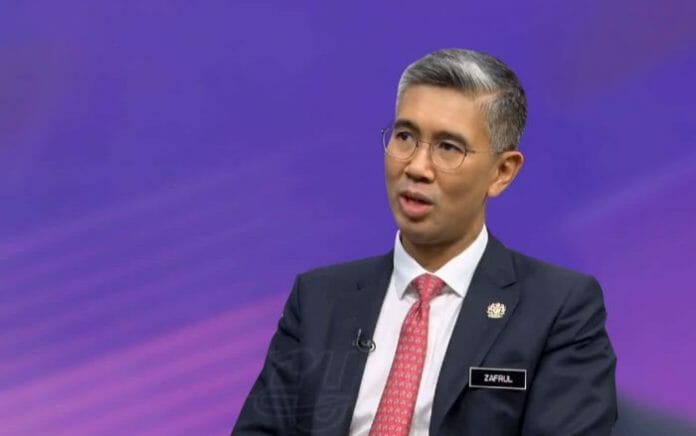The government’s reform efforts under the Twelfth Malaysia Plan will be reelected in Budget 2022 under the 3Rs, namely Recovery, Resilience and Reform, and it is through those three lenses that banks and financial institutions which include development financial institutions or DFIs – will play a critical role moving forward, says Tengku Datuk Seri Utama Zafrul Aziz Minister Of Finance at the Malaysian Banking and Finance Summit 2021 in his opening Keynote Address.
“2022 will be a critical year for Malaysia, a rare window to jumpstart not just an economic recovery, but a recovery of industries, livelihoods and jobs, especially those hit hardest by the pandemic. In that respect, Budget 2022 will remain expansionary and is conceptualised as a recovery budget while complementing the Government’s wider and longer-term reform efforts under the Twelfth Malaysia Plan.
“Budget 2022 will focus on 3Rs, namely Recovery, Resilience and Reform, and it is through those three lenses that banks and financial institutions – including development financial institutions or DFIs – will play a critical role moving forward.” he says.
As the health of the financial sector is tied to the wider economy, it is crucial that the banking industry doubles down on driving a strong economic recovery while supporting business continuity, especially in jumpstarting businesses when the economy reopens.
Therefore, the banking industry is expected to facilitate lending to businesses with accommodative financing and repayment terms, including participating in the offering of the iTEKAD programme that supports micro entrepreneurs to start and sustain their business.
The industry is also expected to provide non-debt-based facilities such as the CAKNA and Jana Niaga liquidity schemes that relieves cashflow constraints of SMEs without increasing their gearing positions.
“Banks are also expected to encourage digital payments, including through the onboarding of small merchants to accept QR payments and ensuring affordable merchant fees, while providing support, including via the various financing schemes, the most underserved segments of borrowers, be it the hospitality sector, micro-enterprises or women entrepreneurs.”
He adds further that in enhancing social protection coverage, the Government in concert with Bank Negara Malaysia (BNM) and the insurance and takaful industry is in the final stages of rolling out the Perlindungan Tenang Voucher programme, which will provide financial assistance for up to 8.4 million Bantuan Prihatin Rakyat recipients in purchasing insurance and takaful coverage from licensed providers.
In the long run, the Government and BNM will continue to stress the importance of financial literacy and sound financial decision making via the various efforts under the Financial Education Network.
In building resilience, banks and financial institutions play a crucial role in, amongst others, supporting their clients in their transition to the needs of a new normal, including embracing digitalisation in their business focus and operations.
Banks will also be enhancing the role of financial intermediation throughout the business cycle of any enterprise, be it the aspiring entrepreneur or the conglomerate on the verge of an IPO and exploring alternative forms of financing including blended finance, supply chain financing or new trade-based facilities.
These efforts will complement wider initiatives by the Government including the National Fourth Industrial Revolution Policy (4IR), where digitalisation and technological adoption are crucial in boosting our economic prospects and resilience, in accordance with the Malaysian Digital Economy Blueprint.
“Just as it is crucial for us to exit this pandemic safely and systematically, it is equally critical that we build back better. That is why the financial sector must step up and play its part in the climate and sustainability agenda. It is encouraging to see that the financial sector is stepping up on this front, including via the offering of sustainable finance solutions and assistance to companies in their transition journey. However, more can and must be done.” he stresses.
He reinforces that as a mobiliser of capital, the banking industry is key in facilitating the transition of companies towards low carbon and sustainable practices via financing and investment beyond the pandemic, be it supporting renewable energy adoption, new technologies or novel ways of doing business.
“Of course, a factor in building back better is changing how banks themselves operate. At a global level, it is encouraging to see that more than 45% of the global banking industry have signed up to the UN Environmental Finance Initiative’s Principles of Responsible Banking. Out of these, 44 of them have formed a Net-Zero Banking Alliance, planning to fully decarbonize their loan books.
“I urge more financial institutions in our country to follow suit, which will augment their business with the objectives of the Sustainable Development Goals and the Paris Climate Agreement. Doing so will ensure the deep integration of sustainability across all business areas of a bank, from strategic decisions, credit appetite to procurement.
He concludes that efforts like these will complement the Government’s embrace of the UN Sustainable Development Goals in its annual budgets. Beginning with Budget 2021, this feature will continue in Budget 2022, as well as through wider initiatives like the SDG-aligned Twelfth Malaysia Plan and the Shared Prosperity Vision 2030.









